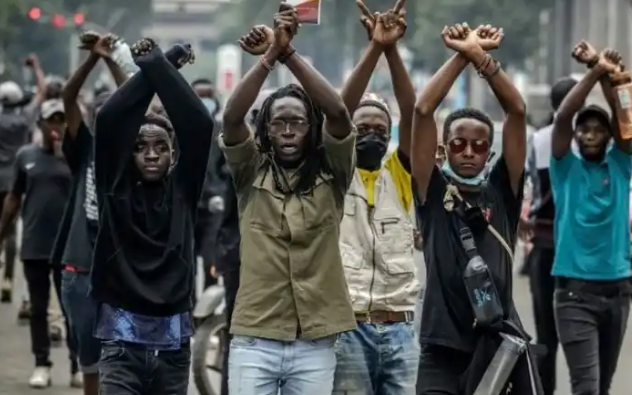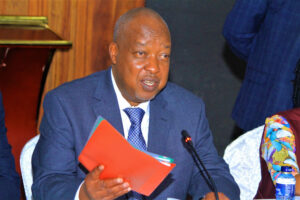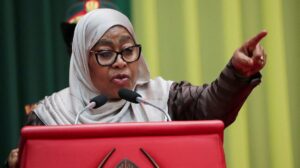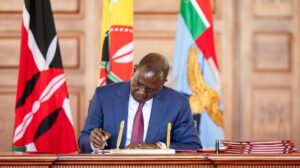The Gen Z revolution has declared an unyielding stance against the presidency of William Ruto.
This generation, marked by its tenacity and digital savviness, has vowed not to relent until Ruto resigns from office.
Weekly protests have become their clarion call, a strategy they are committed to pursuing until their demands are met.
They seek not only the resignation of President Ruto but also that of his colleagues, paving the way for new elections and fresh leadership.
This week’s protests have concluded, and a detailed timetable has been released to guide the Gen Z movement in the coming days. The planned activities reflect a combination of direct action, strategic planning, and symbolic gestures aimed at galvanizing public support and keeping the momentum alive.
The timetable spans from Friday, June 28, to Thursday, July 4, outlining a series of impactful events designed to maintain pressure on the government and amplify their cause.
Friday, June 28 The focus will be on visiting hospitals to offer support to those injured during the recent protests.
The day will also be marked by mourning for the individuals who lost their lives in the demonstrations held on Tuesday and Thursday.
This act of solidarity aims to honor the fallen and highlight the human cost of the movement.
Saturday, June 29: Protesters plan to print posters bearing the images of those killed by police officers.
These posters will be displayed throughout the streets, serving as a stark reminder of the state’s violence and the sacrifices made by the protesters.
This visual campaign is designed to evoke public empathy and outrage.
Sunday, June 30: A significant escalation in tactics is planned for this day.
Gen Z protesters will occupy churches and actively disrupt services to prevent politicians, including President Ruto, from using these platforms for their agendas.
This action symbolizes a rejection of the political establishment’s encroachment on sacred spaces and community institutions.
Monday, July 1: Continuing their campaign of naming and shaming, activists will print posters with the faces of police officers responsible for killing protesters and MPs who supported the contentious finance bill.
This day aims to hold individuals accountable and expose their actions to public scrutiny.
Tuesday, July 2: The protesters will return to the streets, occupying major roads and effectively shutting down the country.
This large-scale demonstration is intended to disrupt daily life and signal the movement’s determination and capability to cause significant civil disruption if their demands are not addressed.
Wednesday, July 3: An investigative approach will be taken as protesters will focus on gathering information about the homes and families of MPs, police officers, and other officials supporting the Kenya Kwanza government.
This tactic aims to apply personal pressure on those in power by revealing their private lives to public attention.
Thursday, July 4: Another round of street protests is scheduled, with the intention of occupying major roads once again and shutting down the country.
This persistent and cyclical approach underscores the movement’s commitment to maintaining continuous pressure on the government.
The Gen Z revolution’s resolve to protest weekly until President Ruto resigns marks a significant moment in Kenya’s political sphere.
This movement is characterized by its grassroots organization, the use of social media for mobilization, and a clear understanding of strategic nonviolent resistance.
Their actions reflect a broader discontent among young people in Kenya, who feel disillusioned by the current political leadership and are demanding change.
The coming weeks will test the resilience and ingenuity of the Gen Z movement.
Their ability to sustain momentum and navigate the challenges posed by state responses will be crucial in determining the movement’s impact.
As they continue to push for new elections and leadership, their struggle is likely to resonate with other disenfranchised groups, potentially sparking a larger wave of activism across the nation.
The Gen Z revolution has thus set the stage for a new chapter in Kenya’s political narrative, one defined by youthful energy, strategic defiance, and an unwavering commitment to justice and democratic accountability.
The world watches as this generation steps up to demand a future that reflects their hopes and aspirations.





















Add Comment